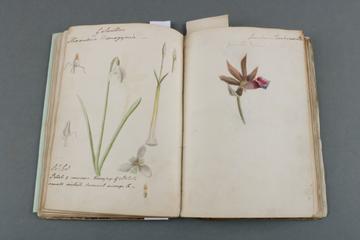
Cayley, George 1773 - 1857
- Nationality:
- English; British
(1773-1857), 6th Baronet Aeronautical Scientist
George Cayley, born on the 27th December 1773 in Scarborough, Yorkshire, was briefly schooled in York before being educated privately by George Walker FRS in Nottingham and George Cadogan Morgan in Southgate, Middlesex. He succeeded his father as baronet in 1792 and lived at Brompton Hall throughout his life.
Fascinated by flight since childhood, Cayley conducted a variety of tests and experiments intended to explore aerodynamic principles and to gather information of value in the design of aircraft. He published the results of his original research in 1809. His most important discoveries included the advantages of streamlining, the means of obtaining longitudinal and lateral stability, elements of wing design, thoughts on biplane and multiplane wings, and the use of rudders and elevators for control. Throughout his active career, Cayley designed a variety of aircraft, including helicopters, airships, and fixed-wing machines.
Cayley established the modern configuration of an airplane as a fixed-wing flying machine with separate systems for lift, propulsion, and control as early as 1799. In 1804 he flew the first successful glider model of which there is any record. His work culminated in 1853 with the completion of a full-scale glider that carried his reluctant coachman on the first manned glider flight on record.
An individual of wide technical and scientific interests, Cayley invented the light-tension wheel (forerunner of the bicycle wheel), the expansion-air, or hot-air, engine (1805), and the caterpillar tractor (1825). He was a founder of the Regent Street Polytechnic Institution (charter of incorporation granted in 1839; now the Royal Polytechnic Institution). He also pursued research in science education, land reclamation, acoustics, railway equipment, lifeboats, ballistics, optics, and electricity.
On 9 July 1795 he married Sarah (d. 1854), the daughter of his first tutor, the Revd George Walker; they had three sons and seven daughters, of whom three children died young. He became president of the York Whig Club from 1821 to 1827 and was MP for Scarborough from 1832 to 1834. Among a wide circle of friends and correspondents Cayley seems to have been recognized as a generous and modest man of great personal charm. He died at Brompton Hall on 15 December 1857 and was buried at Brompton church. He was succeeded in the baronetcy by his only surviving son, Digby (1807–1883).